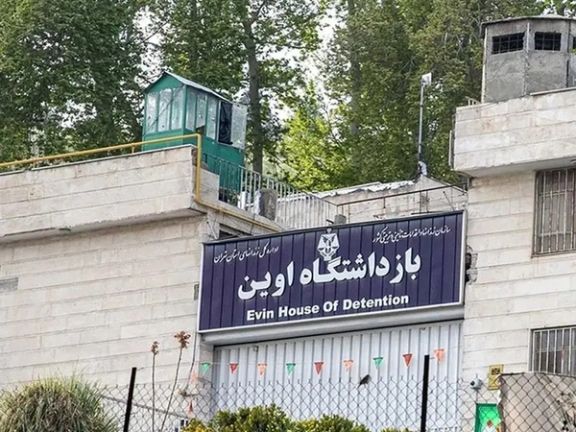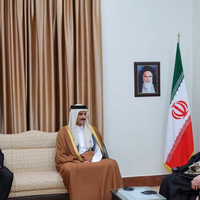These charges were brought by the fifth branch of the Islamic Revolutionary Prosecutor's Office of Tehran, according to a report by the Human Rights Activists News Agency (HRANA) on Friday. The accusations stem from their alleged "membership and collaboration with a group opposing the regime" as reported by HRANA.
In a joint case, Vahid Bani-Amerian, Pouya Ghobadi, Babak Alipour, Abolhasan Montazer, Seyed Mohammad Taghavi, and Ashghar Daneshfar were accused of “baghi” (armed rebellion) and "assembly and collusion against national security" on May 14.
Article 287 of the Islamic Penal Code states that any group taking up arms against the Islamic Republic is considered a rebel and "its members shall be sentenced to death.” This provision means that the six prisoners are facing potential execution due to the charge of rebellion.
HRANA further reported that Bani-Amerian, Ghobadi, Alipour, Montazer, Taghavi, and Daneshfar were arrested in the fall and winter of last year and transferred to Evin prison. They are currently held in various sections of the prison’s Ward 4.
65-year-old Montazer was a former political prisoner during the 1980s and also served time as a political prisoner in recent years. He was released from the infamous Rajaei Shahr Prison in Karaj last year after serving three years of imprisonment.
57-year-old Taghavi was also a former political prisoner in the 1980s.
Alipour and Ghobadi were also arrested in previous years and served time as political prisoners.
Following Iran’s 1979 revolution, the Islamic Republic has continuously arrested, tortured, imprisoned, and executed dissident civil and political activists.
According to Amnesty International, between late July and September 1988, the Iranian authorities “forcibly disappeared and extrajudicially executed” at least 5,000 political prisoners.
Following Iran’s nationwide uprising which started in September 2022 following the killing of Mahsa Zhina Amini in the custody of the so-called ‘morality police’, Iranian authorities have intensified the repression of civil and political activists.
Additional Detainees Facing Armed Rebellion Charges
In February of this year, Iran International reported that two female political prisoners, Varisheh Moradi and Pakhshan Azizi, who are imprisoned in Evin Prison, are facing accusations of "armed rebellion". Moradi and Azizi’s cases were referred to the Revolutionary Court in Tehran for hearings.
Nasim Gholami Simiyari, a political prisoner also imprisoned in Evin prison, has been in custody since her arrest on 18 May 2023 on similar charges of “armed rebellion”.
Golrokh Irani, a political prisoner, wrote a letter from Evin Prison on May 21, marking the first anniversary of Simiyari's arrest and ongoing detention. In the letter, Irani stated that Simiyari was forced to confess against herself during interrogations.
Referring to Simiyari as a protestor in Iran’s nationwide Woman Life uprising, Irani remarked that “bringing heavy charges against a protestor on the streets” reflects the “desperation and malice of the state and its judicial and security [institutions] apparatus.”
“Protest is our right and the street is ours," Irani added.
Last week, writing about Simiyari's legal limbo, pro Bono Dadban Legal Group stated that prolonged indeterminate detention has become a tactic for Iranian authorities to isolate prisoners from their lawyers, apply pressure, and harass them, prisoner, extract forced confessions to build cases against them.









